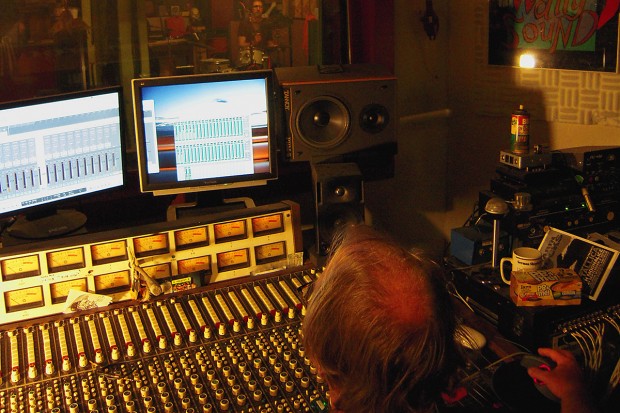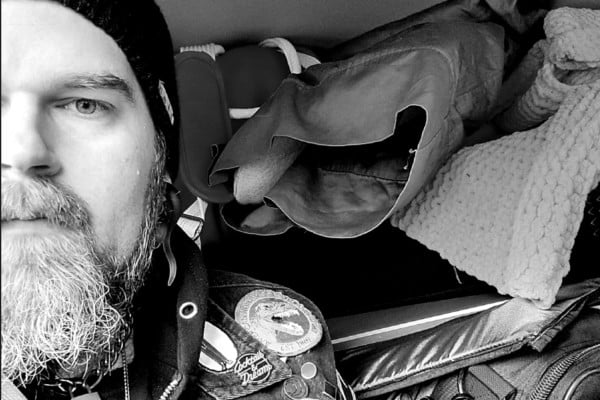Setting a Path to Session Work

Q: I have been toying with the idea of starting a session band. I have the right musicians, we are already tight and working on our own stuff, but I have started wondering how one would go about promoting themselves as a session musician. I have been trying to get in with some professional organizations locally, like the local theatre and such but as yet, to no avail. Personally, I have been playing in bands for TV, radio and live appearances for about five years, so I have all the necessary skills to be a session musician and have started working for free for a select few friends, but I don’t know how to take this a step further. Any advice?
A: Typically, most session bands (Funk Brothers, Muscle Shoals, and so on) started in the studio and by virtue of working well as a unit and creating great recordings, became in demand as a collective.
I’m not sure if I’m misreading your question, but it sounds like you have the horse but need the cart because this scenario typically starts with the cart: studio first, sought out collective of hired guns working as a unit later.
I do know quite a few musicians who have done this with varying degrees of success, but they all had one thing in common: a studio of their own or one a friend owns with whom they could command frequent, discounted access.
I can’t think of a tried and true way to try and sell your band as the band various artists should use for recording their album aside from just placing ads and other promotion, and hoping that word spreads.
The more likely route is the one in which you have a studio that calls you whenever there is an artist who needs a band or – even more common, a producer who calls you for their pet projects (most producers and even many engineers I know are really star seekers. They are always looking for untapped talent to get behind and act as the force that propels them to stardom. That puts them at the ground floor of the pile of money they hope to have helped make.
As a self-employed, full time musician, I always made it a habit of introducing myself to engineers and producers with examples of my work, should they need a replacement bassist for a session. The hope being that I would eventually get in there and wow them with my ability to take direction and nail takes (hopefully).
Once you are “in there”, it does become easier to suggest your preferred players on sessions, and to bring each other into the scene – slowly building the preferred mix of players and becoming the ‘session band’ for a studio and/or producer and/or engineer.
My advice is for all of you to pool your money and record a demo reel to highlight your ability to play various styles with authority, restraint, tone and feel. Then, simply hit the streets and shop your product to every person you think might be in the market, have a connection, have some songs to record, and so on.
Place ads in industry magazines, post flyers in studios that will allow them, as well as music stores. You might also consider Craigslist.
Assuming your demo reel kicks butt and you are all easy to work with and first- or second-take kind of players, the rest depends very much on your market. “B” markets are a little easier in this regard because if it’s a “one horse town”, there just isn’t enough demand to keep you busy. If it’s LA or Nashville, there is a loooong list of incredible players who pretty much have the market cornered. The only time I get work in those towns is when someone specifically seeks me out because they are a fan of my playing directly (or their first choice couldn’t do it and recommended me. Word of mouth – from the right mouth – is priceless in the world of live or studio playing).
I remember during my brief stint living in LA after college setting up a quick meeting with the head of a studio and bringing him a CD and a resume. He liked my playing! And then told me, “Okay… Well, we usually use Nathan East, Dave Carpenter, Leland Sklar or Reggie Hamilton, but if none of those guys can make a session, maybe we’ll try to bring you in and see how it goes”.
Yeah… I never did get a call from that guy.
So, in a nutshell, my advice is this:
- Be the player you need to be to be successful in that scene
- Record as much material as you can displaying your strengths
- Hit the streets and give CDs away
- Go to shows and give CDs away
- Ask the manager of the club that’s hosting a great band that night (to target the music lovers) if it’s ok to leave free sample CDs on each table
- Continue to be proactive but don’t be pushy
Last but not least, hope for a break that get’s you in the door.
After that? Nail it!
How about you folks? Any advice? Do you have any stories relating to this? Please share in the
comments.
Have a question for Damian Erskine? Send it to [email protected]. Check out Damian’s instructional books, Right Hand Drive and The Improviser’s Path.




I was part of a “house band” that did many sessions for a local project studio, and eventually wound up producing my own sessions. First I would say that the skills required to be a session player are very different than those required for live. You can be the greatest live player, but if you freeze up in the studio, have bad equipment, any weirdness to your playing, insist on having “your sound” at all times, need 20 takes to play a simple part, or are a “bad hang”, you will have a tough time getting studio work.
Second, engineers and producers want to work with “known entities” who have demonstrated the above studio skills. I’m very wary about working with new guys in the studio on someone else’s dollar, even if I’ve played live with them for years.
Third, the best way I’ve found to get an “in” with a studio is to book time there yourself or with an artist you know, and show them what you can do.
Another great “in” is to trade off studio time with the engineer in exchange for working on one of his projects. He doesn’t have to risk the client’s money, and you can build up a “bank” of free studio time to use for your own recordings.